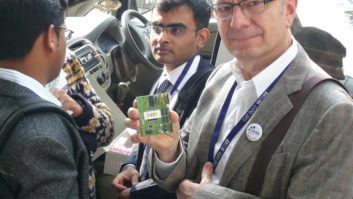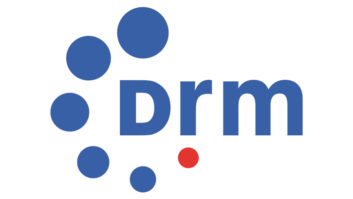The Mexican government is due to select a digital radio technology this year and has authorized testing to begin for Digital Radio Mondiale for the AM band. The public radio network is carrying out the testing.
Mexico is considering both IBOC and Eureka-147 for its FM digital technology.
“DRM is recognized as the worldwide standard for shortwave,” said Jorge Rodriguez Castaneda, the director general of radio and television systems for the Mexican Ministry of Communications and Transportation.
“We will study DRM for application in the AM bands, and maybe the FM bands in the future.”
While the DRM system covers the broadcasting bands below 30 MHz, the DRM General Assembly plans to vote on a proposal to extend it to the broadcasting bands up to 120 MHz at its meeting in Paris next month.
During a DRM symposium in Mexico City on Feb. 9, 80 attendees heard a live broadcast of Radio Educacion from analog medium-wave/AM to DRM, as the Mexican testing process began, according to the DRM press office.
For the symposium, Harris Broadcast installed a DRM modulator board within a DX50 transmitter, and RIZ installed a 200-watt SW DRM transmitter system on 25.620 MHz. Symposium attendees heard DRM live on shortwave courtesy of DRM members Christian Vision (from Chile); Deutsche Welle (from French Guyana); HCJB (from Ecuador), RCI (from Canada), Radio Netherlands (from Bonaire); and TDF (from French Guyana).
Last month, DRM members Texas Instruments and RadioScape said they are developing software and hardware to support the design of lower-cost DRM consumer receivers. TI will supply the DSP -based digital radio silicon along with RadioScape’s software-defined digital radio technology, enabling consumer receivers to have DRM, Eureka-147, FM, short-wave, medium-wave/AM and long-wave capabilities.
DRM’s European commercial launch is to take place later this year.
DRM Tests Begin in Mexico
DRM Tests Begin in Mexico









